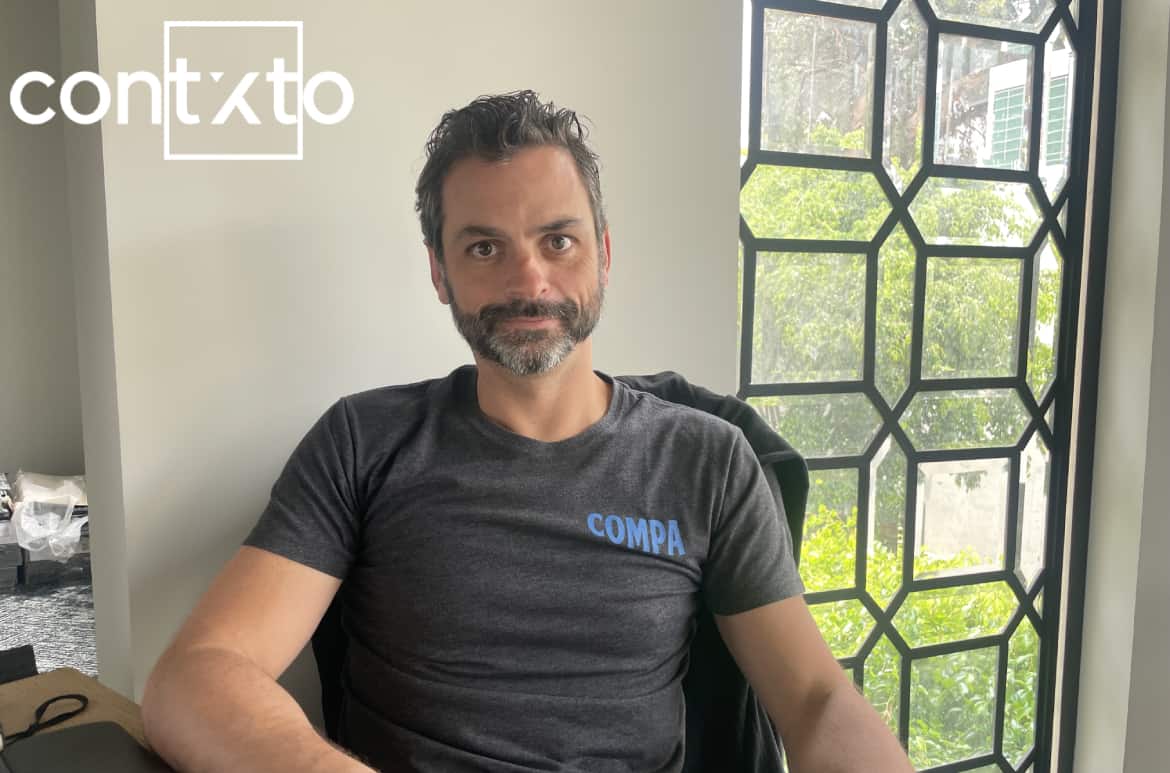
Por Jose Pulido
julio 7, 2023
The real estate is one of the markets that, despite its contractions or crises, continues to grow in Mexico and Latin America. At least in terms of demand. Economic crises may slow its development, but it is a dynamic sector that is constantly evolving. Creating a momentary «monopoly» or an unusual value in this traditional field is considered impossible due to its characteristics, unless, of course, innovation has a unique technological focus.
You might be interested in: After raising US$200 million, Habi, a Colombian proptech, achieves unicorn status
According to a study conducted by real estate consulting firm 4S Real Estate, during the first quarter of 2022, the real estate sector in Mexico showed a quick recovery from the Covid-19 pandemic. This is despite some difficult moments for the industry.
This provides greater stability compared to other scenes in Latin America. In Argentina, over 2,000 real estate companies have closed in the past two years. In Chile, USD$600 million in losses resulted from reorganizations, strategic moves, and bankruptcies of real estate developers.
In Mexico City, many developers were unable to meet their financial commitments and went bankrupt, contracting or disappearing, or handing over their real estate development division to their creditors, as was the case with JSª, once an icon in Mexico City’s areas such as Condesa and Roma Norte.
So, the recovery detected by 4S Real Estate represents an opportunity and the overcoming of threats for Mexico. This economic pulse for the North American country is not solely driven by the credit dynamics offered by traditional banks. Currently, proptech startups – innovations and applications of new technologies in the real estate sector – have become a fundamental player in the transformation of real estate.
Business Insider highlights that venture capital investment in these companies grew 54% between 2018 and 2020, totaling USD$571 million, ranking fourth among sectors that attracted the most capital.
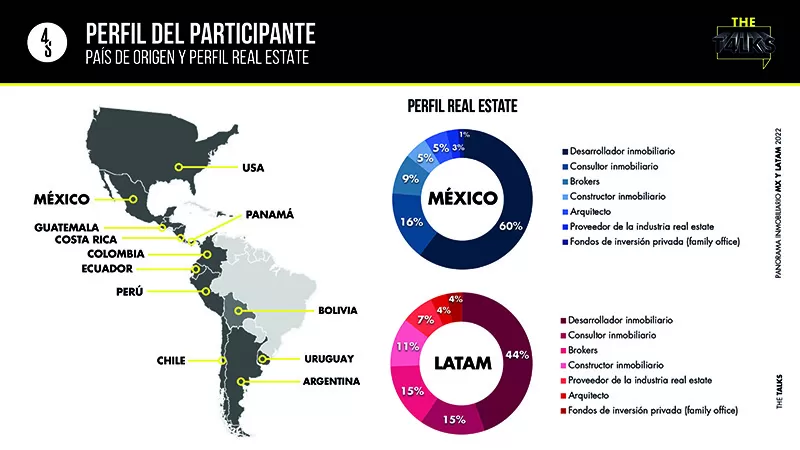
Real Estate Outlook LatAm (4S Real Estate)
With these positive numbers and considering the complexity and risks associated with traditional credit applications, Jorge Combe and Martin Werner decided to found DD360 in 2017, a subsidiary of the company DD3 Capital Partners, specializing in providing financial solutions in the capital markets for real estate development companies.
You may also be interested in: Colombian Proptech Acasa Raises US$38M To Expand In Mexico
«We realized that there was an opportunity to offer subordinated loans for residential developments in Mexico. So, we started as a fund providing subordinated loans,» explains Combe, CEO of the company, in an exclusive interview with Contxto.
In 2022, the residential project financing and management firm received an investment of USD$91 million from international funds such as the Chicago-based firm Creation Investments Capital Management. The injection of capital allowed them to accelerate the growth of their credit portfolio for residential property developers while investing in the development of their technological platforms.
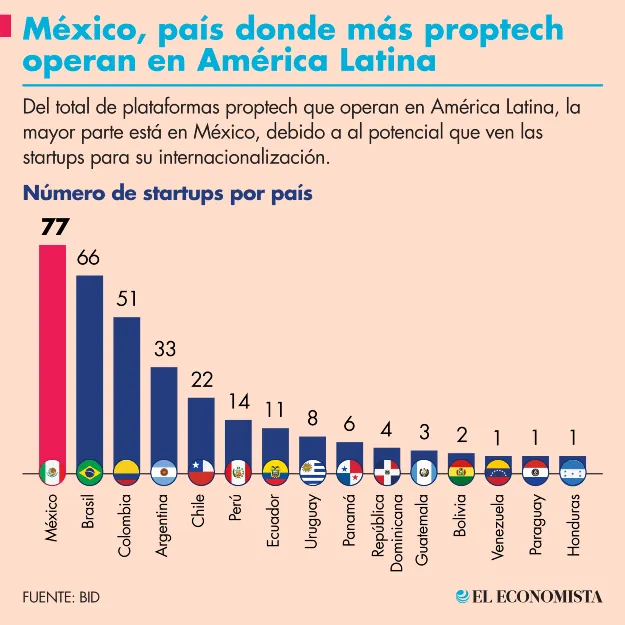
Proptech Startups in LatAm (IDB/El Economista)
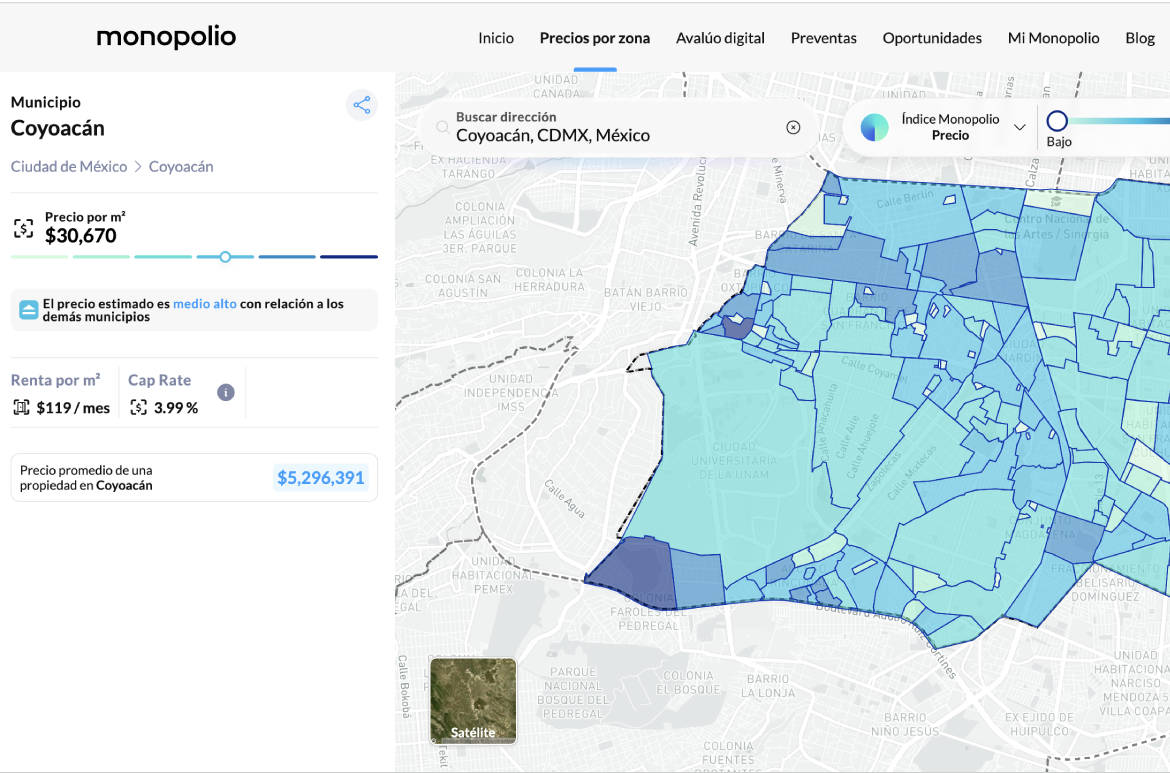
As DD360 expanded its portfolio of loans for real estate developers, Combe and Werner discovered that some traditional real estate practices represented an area of opportunity for their company. The most significant one was the lack of information.
«We realized the lack of information in the industry when we compared it to the United States, and that’s how Monopolio emerged as a response to provide transparency and make consumers who want to invest in real estate or buy a house or apartment for living more sophisticated.»
Monopolio is a virtual real estate advisor that provides real-time assistance for any real estate search or transaction, supported by AI. «Proptech solutions, especially in the region, often fail to meet customer expectations. We noticed that and decided to establish a more honest relationship with the consumer.»
With all the market research data and their client base, Combe made the decision to offer Monopolio as a transparent and free alternative. «We saw the opportunity to make this information public not only for developers to estimate their sales but also for individuals to make better investment decisions or purchase real estate properties.»
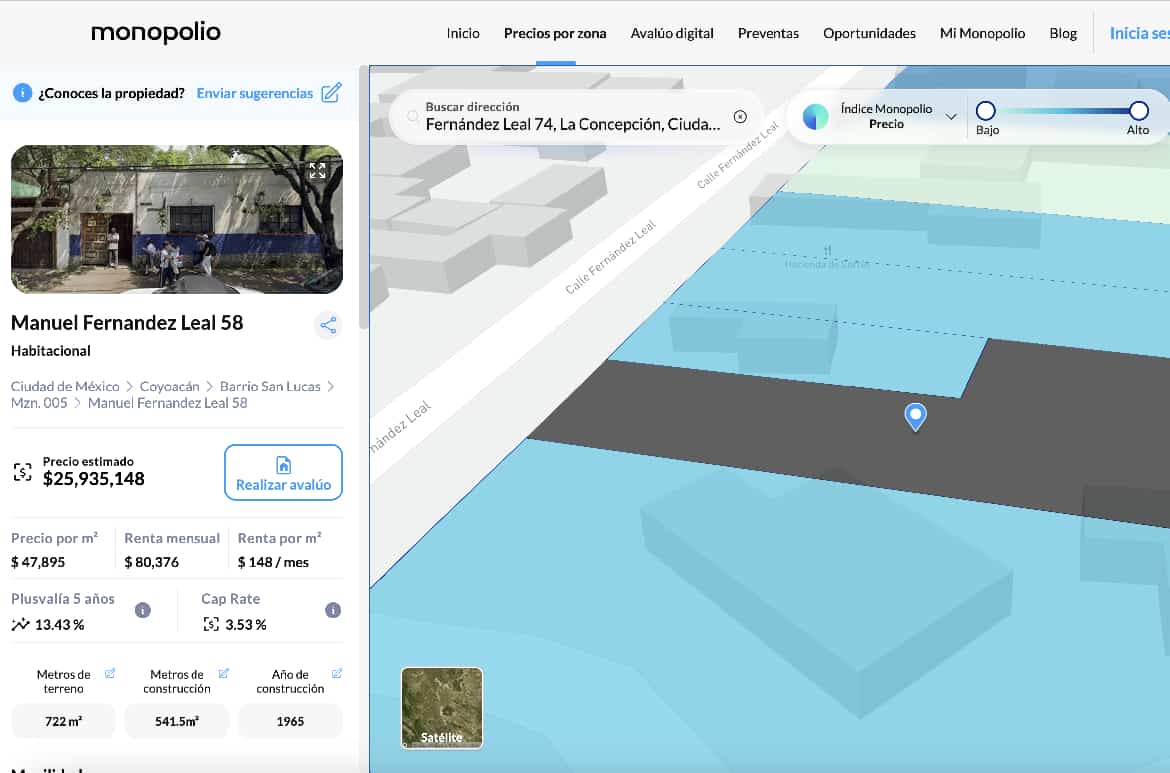
According to a study by the Inter-American Development Bank (IDB) and El Economista, there are 77 proptech startups operating in Mexico, making it the country with the most ventures of this type in Latin America. Although Brazil is the country with the highest number of startups in the region, the language barrier highlights Mexico as the most viable option for investors, as the analysis indicates.
On the other hand, the report emphasizes the existence of a global housing crisis, with over 1 billion people living in inadequate housing conditions. In the latest National Housing Survey conducted by the National Institute of Statistics and Geography (INEGI), there were 8,867,223 homes in Mexico in 2020 (25.2% of the total inhabited homes in the country) that were in precarious construction or habitation conditions. This issue is exacerbated by the specter of a new recession in the sector and a decrease in long-term investor confidence.
Amid these challenges, Jorge Combe finds access to information as his differentiator against the competition. We studied models like Zillow, Idealista, and PropertyGuru, but the reality is that Mexico lacks an MLS, so we resolved it by using algorithms, big data, and continuous iterations to improve our estimates. At DD360, we are convinced that transparency is fundamental for the development of the sector. That’s why Monopolio is free,» he concludes.
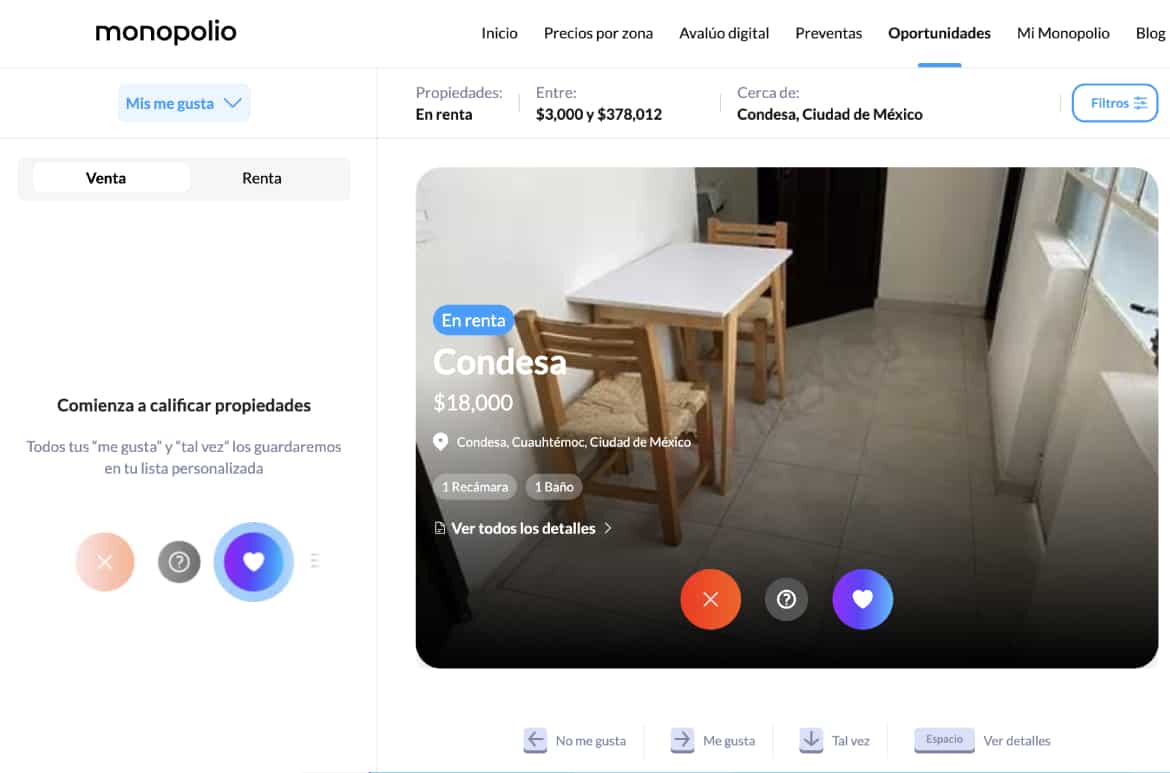
«Our artificial intelligence system is working 24 hours a day,» explains the entrepreneur. However, Monopolio is not a «business» in itself, as such. «We don’t want to charge the public. We believe that there are many related businesses that could be provided in the future, and that’s what makes it interesting.» In other words, it begins its journey like the Big Tech companies: with a free model at the beginning, to learn from the collaborative data of its users.
For now, Monopolio aims to become the best ally for consumers and brokers interested in having better information to carry out their services. They have an MVP that is already circulating among a select list of users who are part of the real estate industry.
So far, Monopolio offers price estimates for any property, predictions of appreciation, and detection of investment opportunities through a virtual map of Mexico City.
So, how does this startup generate revenue? The bet is to improve the relationship between brokers and consumers so that once the type of real estate development is chosen, Monopolio becomes an ally by offering the best credits and deals for the end recipient.
Currently, Monopolio is beta testing a GPT Agent called PAM (short for «ask Monopolio»), where users can get answers to questions about listings or real estate.
They are also developing a system for improving photographs using AI, which allows you to see how your apartment would look if you want to redecorate it. By using these types of tools, the housing backlog, for example, could be alleviated.
«The future is incredible for what can be built, and being a 100% innovative company (we are not copying any existing models), it allows us to dream about what the future of real estate should be like. There are some very interesting AR and VR initiatives that we are considering for our app, and you will soon get to know them,» concludes the CEO of DD360.
In addition to this, Monopolio will continue to expand with the aim of providing free information about properties throughout Mexico. As their AI software becomes more sophisticated, they will offer things like valuation, history, and features of the property, as well as provide indices about the community, such as schools, parks, services, etc.